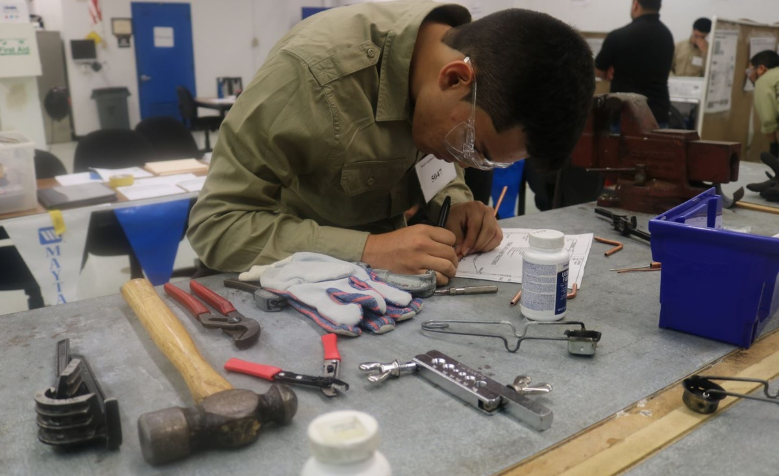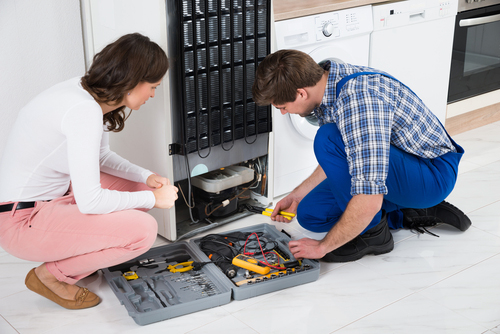Essential Tips for Effective Ref Fixing to Extend Appliance Life Expectancy
When it comes to your fridge, proper repair and upkeep are important for longevity. Recognizing common issues and understanding when to act can make all the difference.
Recognizing Usual Refrigerator Troubles
Fridges are crucial in maintaining your food fresh, but they can encounter a range of typical problems that disrupt their performance. One frequent problem is inadequate air conditioning. If you observe food spoiling quicker than typical, check the thermostat settings or consider if the door seals are harmed. One more common problem is too much sound, which might indicate a malfunctioning compressor or a falling short fan. You could also experience water pooling inside or underneath the fridge; this usually arises from a clogged up defrost drainpipe or a defective water line. Additionally, if your fridge's light isn't functioning, maybe an easy light bulb issue or an issue with the door switch. Ice build-up in the freezer can hinder air flow and cooling down performance. Identifying these issues early can conserve you time and cash in repair services, guaranteeing your refrigerator runs efficiently and successfully.
Normal Upkeep Practices
To maintain your devices running efficiently, you require to remain on top of regular upkeep methods. Tidy the condenser coils, inspect the door seals, and monitor the temperature level settings to guarantee peak efficiency. These basic jobs can save you money and time on repairs down the line.
Tidy Condenser Coils Routinely
Cleaning your condenser coils frequently can significantly boost your home appliance's performance. Dirt and dust construct up on these coils over time, causing your device to function more challenging and consume more energy. To keep them clean, disconnect your home appliance and very carefully get rid of any type of protective covers. Utilize a vacuum with a brush attachment or a soft brush to delicately eliminate particles. If needed, a mixture of warm water and light detergent can aid eliminate persistent crud. Make certain to allow every little thing dry completely prior to reconstructing and connecting the home appliance back in. Aim to clean your coils at the very least two times a year, or more often if you have pet dogs or reside in a messy atmosphere. This simple job can expand the life-span of your appliance significantly.
Inspect Door Seals
Three easy actions can help you assure your device's door seals remain in great problem. Initially, inspect the seals regularly for any kind of cracks, rips, or signs of wear. These problems can bring about air leaks, influencing efficiency. 2nd, tidy the seals using warm, soapy water to get rid of any particles or crud. A tidy seal assures a tight fit and better performance. Ultimately, perform a simple examination by shutting the door on an item of paper. If you can easily draw it out without resistance, the seal might need replacing. By following these actions, you'll preserve your appliance's efficiency and longevity, conserving you money on energy bills and repair work over time.
Monitor Temperature Settings
Consistently monitoring your appliance's temperature level setups is important for best efficiency and effectiveness. Make use of a thermostat to check these setups consistently, particularly after major modifications, like relocating your appliance or changing the thermostat. By staying aggressive about temperature monitoring, you'll ensure your devices run smoothly and last much longer.
Troubleshooting Air Conditioning Problems
When your refrigerator isn't cooling down effectively, it can result in spoiled food and wasted cash, so attending to the problem without delay is crucial. Start by checking the temperature settings to confirm they're at the advised levels, normally around 37 ° F for the refrigerator and 0 ° F for the freezer. If the settings are proper, examine the door seals for any type of spaces or damage; a damaged seal can permit warm air to get in.
Inspect the condenser coils, typically located at the back or bottom of the system. Clean them with a vacuum cleaner or brush to maximize performance. If troubles linger, it may be time to call an expert.
Fixing Water Leakage and Ice Accumulation
If you're handling water leakage or ice accumulation in your appliance, it's important to determine the source of the issue. By determining where the water is coming from, you can avoid further problems and stay clear of pricey repair services. Let's explore some effective approaches to tackle these usual issues.
Recognize Leakage Sources
How can you effectively recognize the resources of water leakage and ice accumulation in your appliances? Start by examining the seals and gaskets on your refrigerator and fridge freezer doors. A used or damaged seal can enable warm air to get in, triggering condensation and ice. Next off, inspect the drain frying pan and drain system for clogs or obstructions; a backed-up drain can cause water pooling. Seek any loosened connections in the water system line, which can develop leaks. Analyze the defrost find out drainpipe for ice build-up, which might interfere with proper drainage. By methodically examining these locations, you'll identify the resource of the trouble, allowing you to take the essential actions to fix it and expand your home appliance's life expectancy.
Prevent Ice Formation
To stop ice formation in your devices, begin by confirming the temperature settings are appropriate. If your fridge or fridge freezer is too cold, it can bring about excessive ice build-up. Inspect the door seals consistently; damaged seals can allow cozy air in, causing condensation and ice formation.
Maintain the appliance well-ventilated and avoid overcrowding, as this can block air flow - GE appliance repair Oro Valley Dependable Refrigeration & Appliance Repair Service. Routinely thaw your freezer if it doesn't have an automated defrost attribute.
If you observe water leak, recognize and fix any type of obstructed drain holes, as they can add to ice build-up. Ultimately, clean the coils and verify they're functioning appropriately to maintain peak efficiency. Taking these steps will certainly aid expand your appliance's life-span and efficiency.
Dealing With Noisy Fridge Seems
While it may appear disconcerting, a loud fridge usually indicates small problems as opposed to major malfunctions. First, identify the resource of the noise. Typical perpetrators include the compressor, fans, and water lines. If you hear a humming noise, it may be the compressor functioning hard; this could simply be a normal operation audio.
Following, check for loose products inside. Occasionally, containers or shelves can rattle, producing undesirable noise. Tighten up or reposition them to get rid of the sounds.
If you see a clicking noise, it may be the defrost timer. This is normally harmless yet might show it needs inspection.
Ultimately, validate your fridge is degree. An unbalanced appliance can generate resonances and noise. Utilize a level to inspect, and adjust the feet if needed. Resolving these problems immediately can assist keep your refrigerator's efficiency and prolong its life-span.
When to Change Components vs. Complete Replacement

Nonetheless, if your click to find out more home appliance is older and experiencing numerous issues, a complete substitute might be more affordable. Take into consideration the price of repair work versus the home appliance's value. If fixings exceed 50% of a brand-new system's rate, it's generally wiser to invest in a substitute. Additionally, if you discover ongoing problems that keep persisting, it's a sign that your appliance has actually gotten to completion of its life. Weigh these aspects thoroughly to make the very best choice for your requirements and budget plan.
Recognizing When to Call a Professional
How can you inform when it's time to contact a specialist for home appliance repair service? If you notice unusual sounds, smells, or leaks, it's a clear signal that something's incorrect. Do not neglect these signs; they typically suggest much deeper problems. If your device stops functioning altogether or often journeys circuit breakers, it's an additional red flag.
You need to likewise consider your very own convenience degree with fixings. If you're uncertain regarding diagnosing the issue or lack the right tools, it's ideal to connect for aid. Keep in mind, attempting complicated fixings jb appliance repair can lead to more damages or also safety dangers.

Regularly Asked Inquiries
Just how Commonly Should I Clean the Fridge Coils?
You need to clean your refrigerator coils every six months. This assists preserve efficiency and protects against getting too hot. If you observe extreme dirt or family pet hair, tidy them a lot more frequently to guarantee your fridge runs smoothly.

Can I Utilize Vinegar for Cleansing My Refrigerator?
Yes, you can make use of vinegar to clean your fridge! It's a superb natural cleanser that removes smells and stains. Refrigerator repair experts Dependable Refrigeration & Appliance Repair. Just mix it with water, apply it to surfaces, and clean down for a fresh, clean fridge
What Temperature level Should My Refrigerator Be Set To?
You need to set your refrigerator to 37 ° F(3 ° C) for perfect food conservation. This temperature level keeps your food fresh while protecting against spoilage, guaranteeing your grocery stores last longer and minimizing waste. It's a very easy adjustment you can make!
Does a Fridge Need to Be Leveled?
Yes, your refrigerator requires to be leveled. If it's unequal, it can affect cooling down performance and create excess sound. Inspect the progressing legs and change them to ensure correct equilibrium for perfect performance.
Exactly How Can I Decrease Refrigerator Power Intake?
To decrease your fridge's energy intake, maintain it tidy and well-ventilated, check door seals for leakages, established the temperature level between 35-38 ° F, and avoid straining it. These steps can considerably decrease your energy bills.